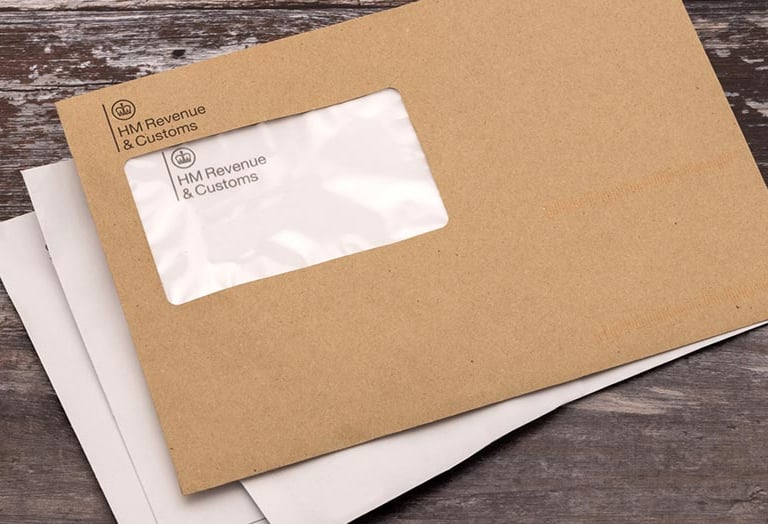Why Content Creators Are Getting Audited — And How You Can Avoid the Same Fate!
Over the past few years, the rise in self-employed digital entrepreneurs has created a new challenge for the UK tax system. While creators may not be aware of their tax responsibilities, the authorities are now zeroing in on individuals who may not be reporting their earnings properly. So, why are content creators getting audited, and how can you avoid falling into the taxman’s spotlight?
TAXABLE INCOMEHMRCCONTENT CREATORS
Cre8tax
3/5/20254 min read
As a content creator, you may spend much of your time focusing on creating engaging content and growing your online presence. However, if you’re earning income from social media platforms, brand partnerships, affiliate links, or any other digital activities, it’s important to remember that these earnings are subject to taxation.
HMRC (Her Majesty's Revenue and Customs) is increasingly turning its attention to self-employed individuals in the digital space, including influencers, YouTubers, bloggers, and others who earn money online.
If you’re not properly reporting all your earnings, including non-cash compensation like gifts, experiences, or promotional products, you might inadvertently trigger an audit.


What Might Trigger an Audit for Content Creators?
Several factors can raise red flags and prompt HMRC to launch an investigation into your tax return:
Underreporting income: If your tax return does not include all sources of income, such as affiliate commissions, sponsored posts, or brand partnerships, HMRC may suspect discrepancies.
Non-monetary income: Many content creators overlook the value of non-cash payments, such as free products, experiences, or services received in exchange for content. These are considered taxable and must be reported.
Unusually high deductions: If you claim expenses that appear disproportionately high compared to your income, it might trigger an investigation into your self-employment status or expenses.
Cross-checking with digital platforms: HMRC has access to data from platforms like PayPal, YouTube, Instagram, and others. If your bank transactions or platform earnings don’t match the income reported in your tax return, this can alert the tax authorities.
Random audits: Sometimes, even with accurate reporting, content creators can be selected for a random audit as part of routine checks on self-employed individuals.
What Might an Audit Letter from HMRC look like?
A letter from HMRC notifying a content creator of an audit or investigation will typically be formal, professional, and clear in its language. It will outline the reason for the audit, the steps that need to be taken, and any potential consequences if the requested information is not provided.
Key Points in the Letter:
Clear Identification: It will identify the content creator's name and address, and be specific about the tax year under investigation.
Reason for the Audit: The letter will explain why the creator is being investigated, often referencing income discrepancies, missing details, or inconsistencies in reporting.
Requested Documentation: The content creator will be asked to provide a list of specific documents (income breakdown, receipts, bank statements, etc.).
Action Required: It will include a clear deadline for submission and information about the consequences of non-compliance.
Contact Details: There will be contact information for the creator to reach out to HMRC if they have questions or need assistance.
In short, the letter from HMRC will be straightforward but formal, outlining exactly what is required from the content creator and what could happen if the issue isn’t addressed.


Tips to Avoid an HMRC Audit
The good news is that there are steps you can take to avoid getting audited and to ensure you're fully compliant with UK tax laws.
A. Keep Accurate Records
Record every transaction — even if it’s a product or service exchange and not a direct payment. Use a spreadsheet or accounting software to track:
Payments received from brand deals
Revenue from ads or affiliate links
Product or service exchanges
Business expenses (equipment, software, travel)
B. Report All Earnings, Including Non-Monetary Payments
If you receive products, experiences, or services for free in exchange for content, make sure to assign a value to them and report them as taxable income. Failure to do so can lead to penalties if audited.
C. Register as Self-Employed
If you haven’t already, make sure you register as self-employed with HMRC. This allows you to file your Self Assessment tax return each year. Even if your income is sporadic, being registered ensures you're playing by the rules.
D. Understand Your Expenses
You can reduce your tax bill by claiming legitimate business expenses. This could include equipment purchases (e.g., cameras, computers), subscriptions for editing software, and even travel costs for work-related activities. Make sure you keep all receipts and records for these expenses to back up your claims.
E. Consider Hiring a Specialist
If you’re unsure about the tax laws and regulations, it may be worth consulting with an accountant who specialises in self-employment or content creator taxes. They can ensure you’re filing correctly and help you maximise your tax deductions.
Final Thoughts
The rise of content creators has brought a new wave of attention from tax authorities, and with it comes the responsibility to pay your fair share. With HMRC ramping up its efforts to ensure that all income — even non-cash gifts — is properly reported, it’s crucial to take steps now to avoid the consequences of an audit.
By staying organised, keeping track of all your earnings, and understanding your tax obligations, you can keep your business running smoothly while avoiding unnecessary stress. Remember: taxes don’t have to be intimidating, as long as you stay ahead of them.
Want expert tax advice for content creators? Cre8tax is here to help! Get in touch and let’s make sure you’re covered.
Call us on 0800 0016 878 or email us at info@cre8tax.co.uk






